All Stories
-
 Science & Society
Science & SocietyMonster fish, forensics and space exploration on display
Exhibits and opera infuse science into their experience.
-
 Health & Medicine
Health & MedicineBuilding standards aren’t to blame for chilly offices
A recent study made headlines for finding differences between men and women in comfort level for heating and cooling. But that’s not why women are cold in the office.
-
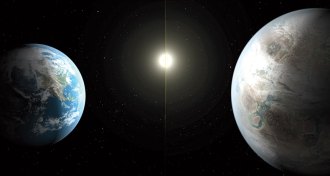 Planetary Science
Planetary ScienceNew exoplanet: Big Earth or small Neptune?
NASA’s Kepler spacecraft has discovered a “cousin” of Earth 1,400 light-years away. But even though the new planet bears many similarities to Earth, experts say much about it remains a mystery.
By Andrew Grant -
 Neuroscience
NeuroscienceHints of how the brain “sees” dreams emerge
Nerve cells that make sense of visual input keep chugging away during REM sleep, suggesting that these cells may help a sleeper “see” dreams.
-
 Neuroscience
NeuroscienceHints of how the brain “sees” dreams emerge
Nerve cells that make sense of visual input keep chugging away during REM sleep, suggesting that these cells may help a sleeper “see” dreams.
-
 Health & Medicine
Health & MedicineFish oil may counter schizophrenia
Three months of omega-3 fatty acids protects against psychosis for years, a small study suggests.
-
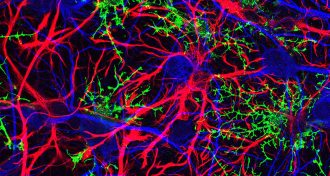 Neuroscience
NeuroscienceRethinking which cells are the conductors of learning and memory
Brain cells called glia may be center stage when it comes to learning and memory, recent research suggests.
-
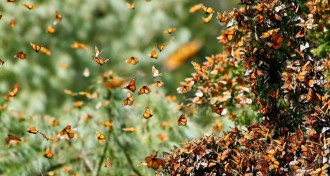 Animals
AnimalsBiologists aflutter over just where monarchs are declining
Citizen science data fuel debate over whether weed control ruined monarch habitat and whether the butterflies are failing to reach their Mexican winter refuge.
By Susan Milius -
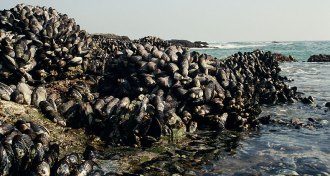 Chemistry
ChemistryMussels use chemical primer to cement themselves to rocks
Gluing proteins contain their own built-in primer.
By Beth Mole -
 Psychology
PsychologyDecision tree for soldiers could reduce civilian deaths
A new, three-part decision formula may help soldiers save civilians’ lives.
By Bruce Bower -
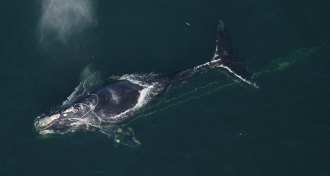 Animals
AnimalsSimple change to fishing nets could save endangered whales’ lives
Making industrial fishing ropes weaker would reduce humpback and right whale bycatch by almost three-quarters
-
 Neuroscience
NeuroscienceA voyage into Parkinson’s disease, led by patient and journalist
Jon Palfreman’s Brain Storms explores Parkinson’s disease in the past, present and future.